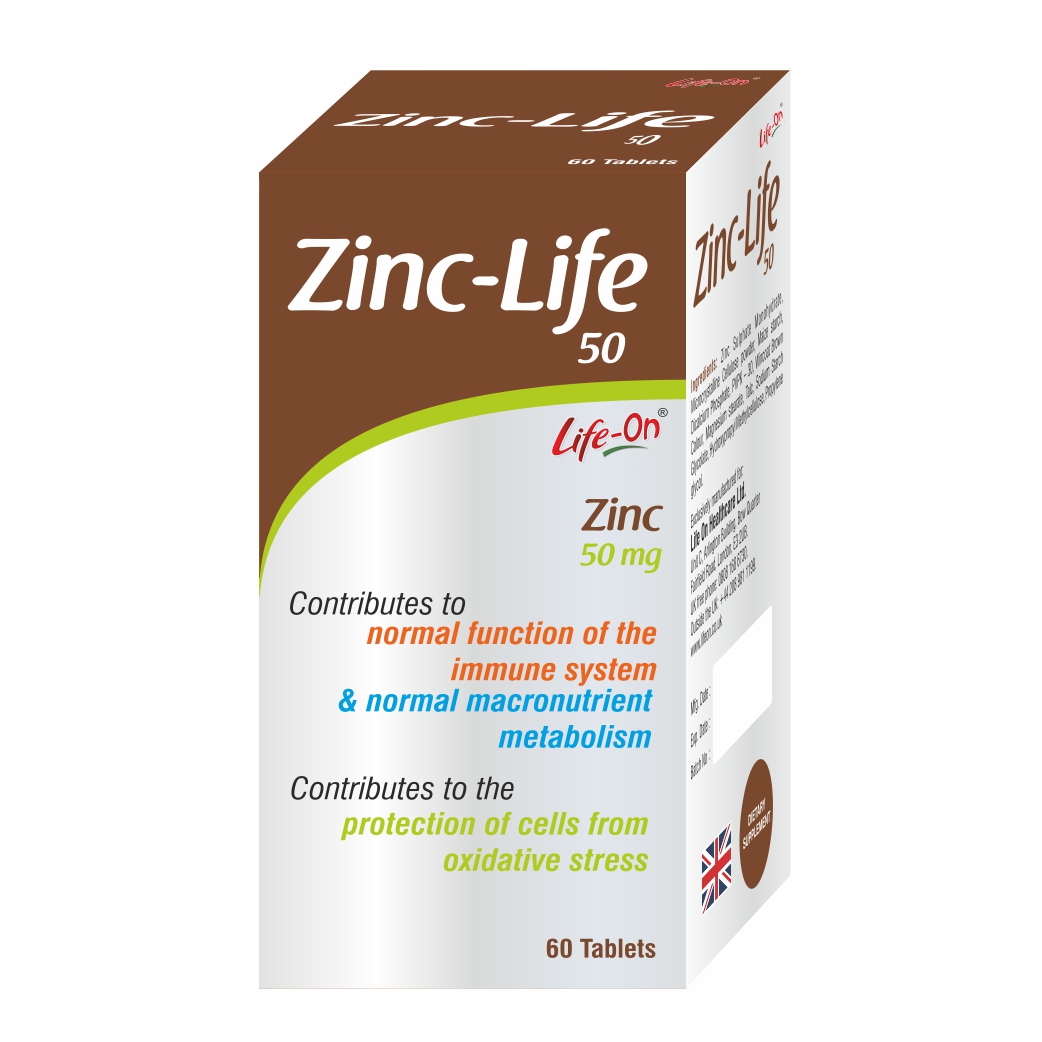

Product information
Zinc is a mineral in your body that is involved in hundreds of chemical reactions in the human body. Zinc is important for immune function, acid-base balance, digestion, growth and development, skin and hair health, genetic transcription, antioxidant activity and much more (1).
What happens if my zinc is low/if I don't get enough zinc?
Because zinc affects so many systems in the body, there is no single distinct symptom of zinc deficiency. Some of the more common symptoms include loss of or diminished smell and taste, poor wound healing, hair loss, roughening of skin/rashes, low libido (men), canker sores, lethargy, and deformed nails (1).
Zinc is found in a wide variety of foods. Some of the best sources include shellfish, other seafood, meat, dairy products, legumes (beans, peas, lentils), nuts and seeds. Zinc is also found in most multivitamins and in a wide variety of dietary supplements. Zinc may be better absorbed if you take it with a protein-rich meal (1).
Zinc is a mineral. It is called an "essential trace element" because very small amounts of zinc are necessary for human health. Since the human body does not store excess Zinc, it must be consumed regularly as part of the diet. Common dietary sources of Zinc include red meat, poultry, and fish. Zinc deficiency can cause short stature, reduced ability to taste food, and the inability of testes and ovaries to function properly (2).
Why Life On Zinc-Life 50?
Life On Zinc-Life 50 provides the best quality form of Zinc, which are better absorbed when taken. Zinc is an essential trace element and has a number of roles and functions in the human body.
It is an essential component/cofactor for more than 300 enzymes involved in the synthesis and metabolism of carbohydrates, lipids, proteins, nucleic acids and other micro-nutrients.
It stabilises cellular components and membranes and so is important for cell and organ structure and integrity.
It is essential for cell division and is needed for normal growth and development during pregnancy, childhood and adolescence.
It is involved in DNA synthesis and the process of genetic expression.
It is important for immune function (both cellular and humoral immunity).
It is involved in wound healing and tissue repair.
It is needed for the senses of taste and smell (3).
Adequate Zinc intake is especially important for children because even mild Zinc deficiency can impede growth, increase risk of infection, and increase risk of diarrhea and respiratory disease. The recommended intake for children 1-8 years old ranges from 3-5 milligrams, increasing as the child gets older. Males 9-13 years old require 8 milligrams of zinc per day. After the age of 14, the requirement increases to the 11 milligrams per day that is required for all adult males. For females over the age of 8, the requirement stays stable at 8 milligrams per day, except for ages 14-18, where the recommendation increases to 9 milligrams per day. Pregnant and lactating women have an increased need for zinc at 11-13 milligrams per day, depending on age (4).
Benefits of Zinc-Life 50
Zinc contributes to normal DNA synthesis, DNA synthesis & macronutrient metabolism and contributes to normal protein synthesis (5).
Zinc contributes to the maintenance of normal bones, hair, nails & skin and also contributes to the maintenance of normal vision (5).
Zinc contributes to the normal function of the immune system & to the protection of cells from oxidative stress (5).
Zinc contributes to normal fertility and reproduction and normal testosterone levels in the blood (5).
Zinc for treating diarrhea. According to the World Health Organisation, diarrhea kills an astonishing 1.6 million children under 5 every year. Zinc pills may help reduce diarrhea. A PLoS Medicine study, which “followed a nationwide public health campaign to increase zinc use for childhood diarrhea in Bangladesh,” confirmed that a 10-day course of zinc tablets is effective at treating diarrhea and also helps prevent future bouts of the condition (6).
Zinc effects on learning and memory. Research conducted at the University of Toronto and published in the journal Neuron suggested that zinc has a crucial role in regulating how neurons communicate with one another, affecting how memories are formed and how we learn (6).
Zinc to treat the common cold. Zinc lozenges were found to shorten the duration of common cold episodes by up to 40 percent in a study published in the Open Respiratory Medicine Journal (6).
Zinc's role in wound healing. Zinc plays a role in maintaining skin integrity and structure. Patients experiencing chronic wounds or ulcers often have deficient zinc metabolism and lower serum zinc levels. Zinc is often used in skin creams for treating diaper rash or other skin irritations (6).
References
1. https://www.whittington.nhs.uk/document.ashx?id=1950
2. https://www.webmd.com/vitamins/ai/ingredientmono-982/zinc
3. https://patient.info/doctor/zinc-deficiency-excess-and-supplementation-pro
4. https://www.medicalnewstoday.com/articles/263176#sources
5. Zinc, EU Register of nutrition and health claims made on foods.
6. https://www.medicalnewstoday.com/articles/263176#sources
